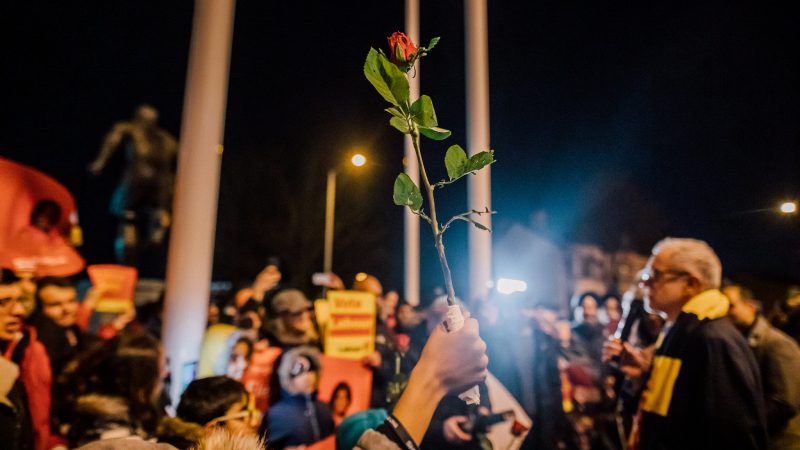
Since I last wrote an explainer on Labour’s 2020 national executive committee elections back in July, three of the 18 seats up for grabs have been taken: incumbents George Howarth, Margaret Beckett and Shabana Mahmood were chosen again by Labour MPs as parliamentary representatives. This leaves 15 seats still in play.
CLP reps x9
42 of 66 candidates seeking to represent members on the ruling body secured enough local party nominations between July and September to appear on the ballot paper. 23 belong to one of the factional slates, while 19 are standing as independents.
Those on the main Labour left slate, Grassroots Voice, did best in the nominations stage of the race, with its six candidates winning 42% of local party nominations compared to a combined 24% for the six on the Labour to Win slate made up of strong Keir Starmer supporters.
But there are nine places and no slate has put forward nine candidates due to the move from first-past-the-post to single transferable vote for this section, which calls upon factions to maximise first preference votes for their favoured candidates. The final outcome will inevitably be a factional mix.
LabourList analysis by James McAsh estimated, based on nominations, that Grassroots Voice would secure four CLP seats, Labour to Win three, Open Labour’s Ann Black would get one – and the ninth too close to call.
Disabled members rep x1
This is an entirely new post on Labour’s NEC. 11 candidates qualified for the ballot by getting five local party or two trade union nominations, but one has withdrawn from the race, leaving ten in the race.
Emily Brothers has earned a mention after getting the support of affiliated trade union Community, but the race is primarily between the soft left’s George Lindars-Hammond and the Labour left’s Ellen Morrison.
An electoral college is used for this contest: 50% unions, 50% self-identified disabled Labour members. With the backing of two big unions, UNISON and GMB, Lindars-Hammond has 60% of the vote, while Unite-endorsed Morrison has 39%.
This means Morrison would need 20% more votes from members than Lindars-Hammond in order to win. He has the advantage going into the election, but it is far from impossible for the tables to turn: he secured 64 local party nominations, whereas she secured an impressive 206.
Youth rep x1
This NEC post is not new, but again an electoral college – 50% unions, 50% young members – is used for the final vote. Only two people are on the ballot, as candidates needed to clear a high bar (50 young members and two affiliate groups) to get through the nominations stage.
With the union votes cast, incumbent Lara McNeill has managed (like George Lindars-Hammond) to get two of the three big affiliate unions on board. Unite and GMB support effectively gives her 60% of the votes already cast.
Kira Lewis would need at least 61% of the membership vote to win – otherwise, the current youth rep retains her seat. Lewis got 573 young member nominations and Neill got 582, which means the situation is more positive for the union frontrunner in this race than in the disabled rep contest, but again it is close.
Treasurer x1
Again, an electoral college: 50% unions, 50% members (of no particular kind). But we pretty much know the outcome of this one: with 100% of the union vote, incumbent Diana Holland only needs 1% of members’ votes to win – and she is set to outdo this after securing 242 local party nominations.
Councillors x2
There is no college involved her, this is a one-member-one-vote ballot of Labour councillors, directly-elected mayors, police and crime commissioners. Four have made the ballot, but incumbents Alice Perry and Nick Forbes were significantly ahead in terms of Labour group nominations.
Wales rep x1
This is not a new post, but it is being elected by one-member-one-vote for the first time this year – of Welsh Labour party and affiliate members. It is between incumbent Mick Antoniw and former First Minister of Wales Carwyn Jones.
Antoniw has a head start with stronger affiliate backing – he secured Unite and UNISON, while Jones got GMB’s support – and Antoniw was nominated by 19 local parties in Wales compared to 11 picking Jones.




More from LabourList
‘Labour’s quiet quest for democratic renewal’
‘Labour promised to make work pay. Now it must deliver for young people’
‘Council Tax shouldn’t punish those who have the least or those we owe the most’